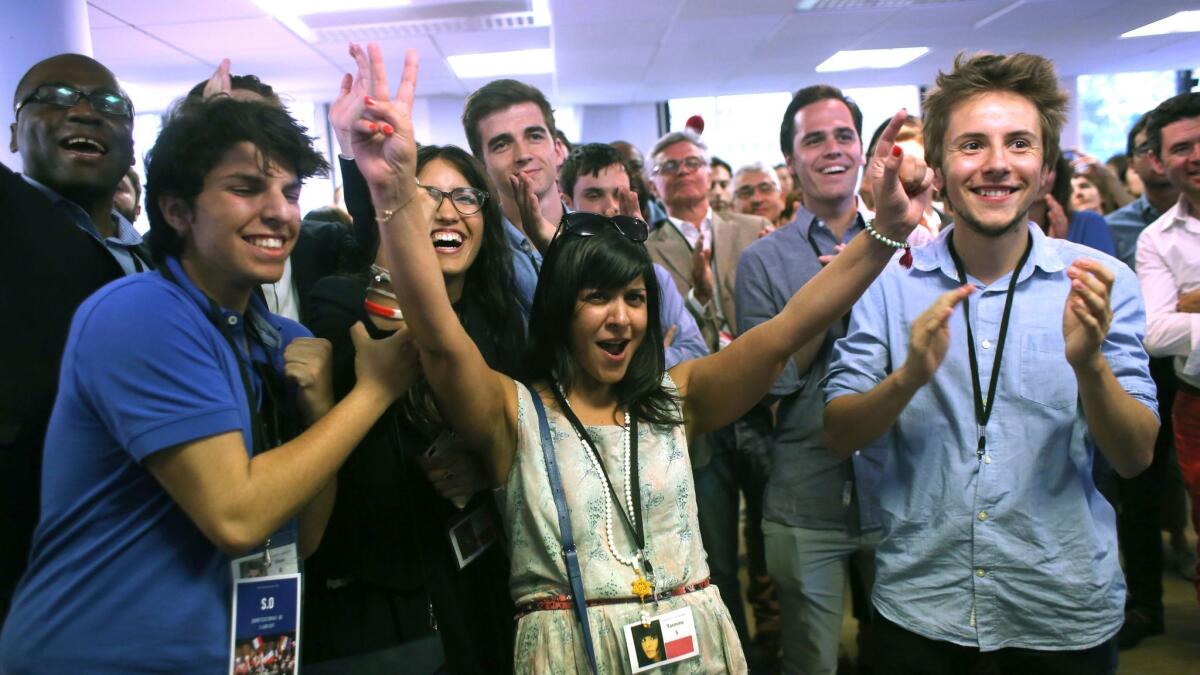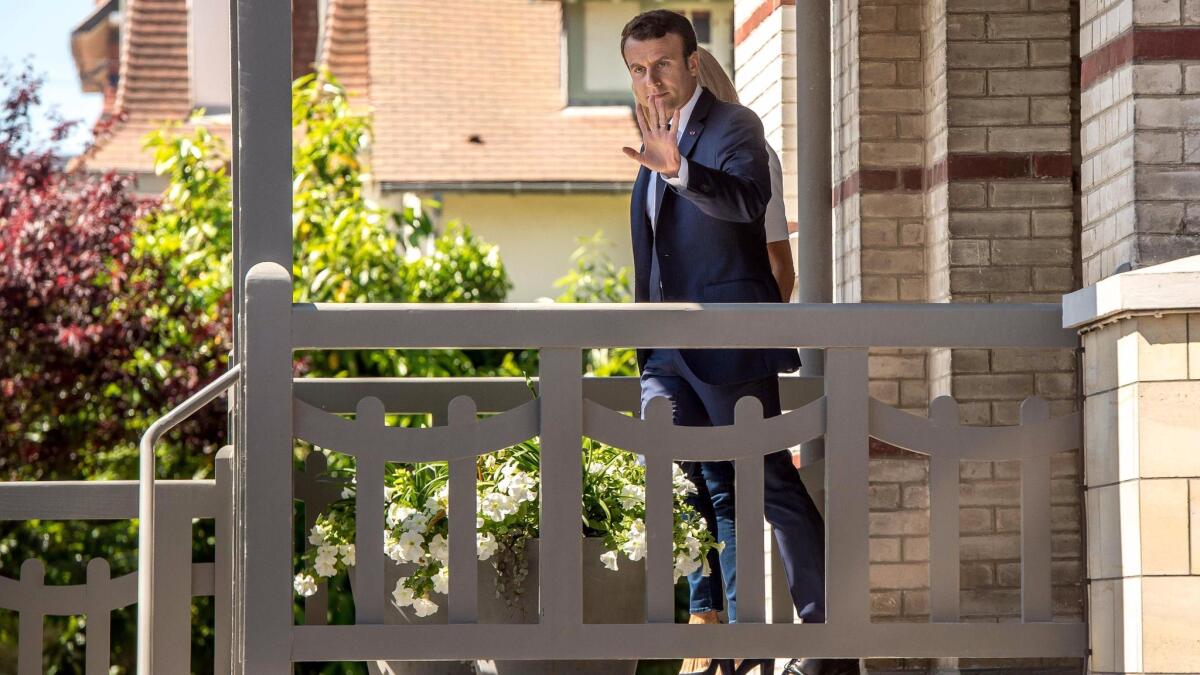Macron is the big winner again as France votes in first-round parliamentary elections

- Share via
Reporting from PARIS — French President Emmanuel Macron emerged triumphant Sunday for the second time in a month after voters gave his party a ringing endorsement in the first round of parliamentary elections.
Preliminary estimates, based on exit polls and early vote-counting, suggested that Macron’s newly formed La Republique En Marche (the Republic on the Move) party won about 32% of the vote. The results need to be upheld by a second-round vote on June 18, but pollsters suggest Macron is easily heading for an absolute majority in the National Assembly, the lower house of Parliament.
With fully half of eligible voters staying away from the polls on Sunday, however, the French expressed what analysts said was “election fatigue” after the long presidential campaign that ended in Macron’s victory last month.
Macron, a relative newcomer to politics, needs a majority in the National Assembly to push through his centrist reform program. His candidates for Parliament are young, mostly inexperienced and from diverse backgrounds. Half are women and up to half have never held an elected position.
They include a former bullfighter and ex-fighter pilot, a prize-winning mathematician and an anti-corruption magistrate.
There was an average of 14 candidates in each of France’s 577 parliamentary areas; those who polled more than 12.5% of registered voters advance to the second round.
The conservative Republicans garnered 21% in Sunday’s vote, according to early estimates; the far-right National Front 13%, the leftist Unbowed France 11% and the Socialist Party just 9%.

The main loser in this election, as in the presidential vote, was the Socialist Party, which led the country for the last five years under Francois Hollande before Macron was elected. The Socialists came in a humiliating fifth in the first round of the presidential vote in April. Macron finished first in both rounds.
Prime Minister Edouard Philippe, a member of the rival Republicans who was chosen to head Macron’s cross-party centrist government, suggested the first-round legislative results were incontestable.
“The French people’s message is unambiguous. For the third consecutive time, millions of you confirmed your attachment to the project of renewal, unity and reconquest of the president of the republic,” he said.
“France is back,” Philippe added. “For the past month, the president has embodied, in France and on the international stage, audacity and determination…. Next Sunday, the National Assembly will embody the new face of our republic, strong, united, and attentive to the needs of all.”
The percentage results suggest Macron’s party will have 415 to 445 seats in parliament after the second round, which would shatter all previous records for a parliamentary majority. He needs only 289 for an absolute majority.
The official opposition will be the Republicans with between 80 and 100 seats, the Socialist Party with between 30 and 40 and Unbowed France at 10 to 20. The National Front, whose leader, Marine Le Pen, was Macron’s presidential rival, is expected to have only one to four seats in the National Assembly.
ALSO
A grim pattern in European attacks: Missed chances to pinpoint terrorism suspects beforehand
Trump’s ‘America first’ policy changes U.S. role on global stage
Theresa May vows to hang on as British prime minister, but the road ahead is rocky
Willsher is a special correspondent.
UPDATES:
4:20 p.m.: This article has been updated with quotes, background.
This article was originally posted at 11:55 a.m.
More to Read
Sign up for Essential California
The most important California stories and recommendations in your inbox every morning.
You may occasionally receive promotional content from the Los Angeles Times.










